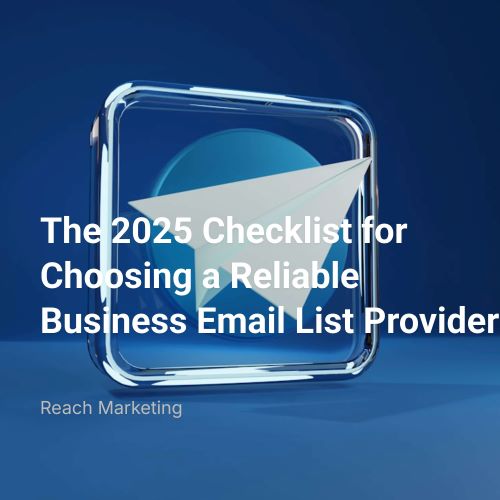Running a business often requires balancing tradition with innovation. While traditional methods provide stability, adapting to new technologies can streamline operations and propel your company forward. This dynamic is particularly evident in marketing, where businesses must decide between sticking with familiar strategies or embracing advancements like marketing automation.
Marketing automation leverages sophisticated algorithms to target and engage potential customers, often with minimal manual intervention. By automating repetitive tasks, businesses can achieve greater efficiency and better outcomes. With decades of expertise in marketing automation, Reach Marketing presents nine compelling ways marketing automation can pay for itself and drive profitability.
Modern consumers prefer non-intrusive interactions. Automated marketing capitalizes on this by utilizing data-driven insights to deliver personalized and timely messaging. This approach often results in conversion rates exceeding 200% compared to traditional methods.
Key Benefits:
| Metric | Traditional Marketing | Marketing Automation |
|---|---|---|
| Conversion Rate | 2% | 6% |
Example: A retail company used marketing automation to send personalized product recommendations, achieving a 250% increase in sales conversions.
Email marketing remains one of the most cost-effective channels, but its success hinges on delivering compelling messages. Marketing automation ensures optimized subject lines, personalized content, and precise targeting.
Impact on Metrics:
Real-World Application: A SaaS company utilized automated email sequences to nurture leads, resulting in a 35% uplift in customer engagement.
Converting leads into customers is often resource-intensive. Automation streamlines this process by efficiently qualifying leads and nurturing them through the sales funnel.
| Metric | Traditional Marketing | Marketing Automation |
| Leads Converted | 1 in 325 | 1 in 21 |
Use Case: An e-commerce brand implemented lead scoring automation, increasing their lead-to-customer conversion rate by 15%.
Scaling traditional marketing efforts often requires hiring additional staff or extending hours, driving up costs. Automation operates around the clock without incurring overtime or benefits expenses.
Financial Gains:
Example: A small business saved over $50,000 annually by automating their email campaigns, reallocating resources to strategic growth initiatives.
Not all leads are created equal. Automation excels at distinguishing between casual browsers and serious prospects, focusing efforts on those most likely to convert.
Results:
Case Study: A B2B company used predictive analytics within their marketing automation platform to target high-value prospects, achieving a 300% improvement in lead quality.
Automation complements human sales teams by taking over repetitive tasks, freeing employees to focus on closing deals and nurturing relationships.
Benefits:
Industry Insight: A real estate firm integrated CRM with marketing automation, increasing their property sales by 20% through timely, automated lead follow-ups.
Ultimately, the goal of any marketing initiative is to boost revenue. Marketing automation achieves this by improving efficiency, enhancing targeting, and maximizing conversions.
Revenue Impact:
Example: A subscription-based business saw a 40% annual revenue growth after implementing automated workflows for customer retention and upselling.
Marketing automation is not just about acquiring new customers; it’s also an excellent tool for retaining existing ones. By sending timely and personalized follow-ups, businesses can nurture loyalty and reduce churn.
Retention Boosts:
Example: An online retailer achieved a 25% increase in repeat purchases by automating post-purchase follow-ups and offering tailored recommendations.
Automation platforms provide robust analytics, offering actionable insights into campaign performance. This data-driven approach enables businesses to refine strategies and allocate resources effectively.
Key Insights Gained:
Example: A marketing agency used automated reporting to identify underperforming campaigns and reallocated budgets, boosting overall ROI by 30%.
Many businesses hesitate to adopt marketing automation due to upfront costs or fear of alienating customers. However, the data proves otherwise:
Marketing automation is no longer a luxury; it’s a necessity in today’s competitive landscape. By increasing conversion rates, reducing overhead, and driving revenue growth, automation quickly pays for itself and delivers lasting benefits.
For businesses ready to modernize their marketing approach, automation offers a proven path to success. Start small, monitor the results, and scale up to fully realize the potential of this transformative tool. Reach Marketing, with its years of experience, can guide you in unlocking the full potential of marketing automation.

Rethinking Lead Generation in a No-Call Era The traditional practice of cold calling is no longer the gold standard in lead generation. With call...

In today’s highly competitive landscape, B2B marketing agencies play a pivotal role in helping businesses expand their reach, generate high-quality leads, and nurture client...

With a growing emphasis on privacy and personalization, the 2025 digital marketing landscape is far less forgiving of careless or outdated outreach strategies. The...